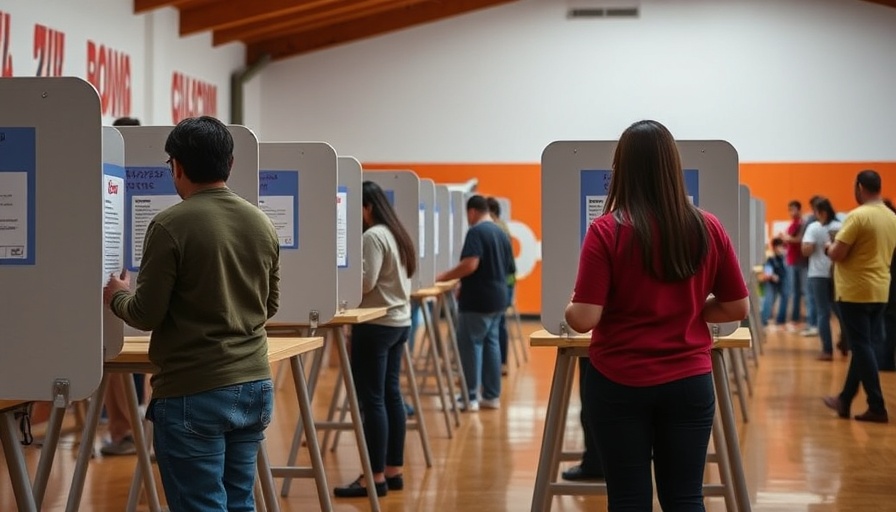
Ecuador’s Presidential Election: A Crucial Turning Point for Families
The upcoming presidential election in Ecuador is not just about political parties and candidates; it represents a significant moment for many families across the nation. As parents, understanding the implications of this election enables us to make informed decisions not only for our communities but for the future of our children as well. Let's delve into what this election means for the family unit and the broader implications it has on our daily lives.
A Historical Context: Ecuador's Democratic Evolution
To grasp the current atmosphere surrounding the presidential election, it is essential to consider the historical context. Ecuador has undergone substantial political upheaval over the past two decades, shifting from political instability to more democratic frameworks. This evolution has resulted in periods of relative calm and prosperity interspersed with significant challenges, including corruption scandals and social unrest. With children observing these dynamics, parents must not only feel a sense of urgency in nurturing future citizens but also in engaging them in political discourse to foster a sense of civic responsibility.
What’s at Stake: The Issues Affecting Families
As parents, we should be particularly attuned to the issues at stake in this election. Topics such as education reform, healthcare accessibility, and economic stability directly impact our families. Candidates are proposing varied strategies and policies to address pressing social issues, including the ongoing struggles with youth unemployment and safety concerns related to drug abuse. For instance, affordable education and health services can shape a conducive environment for our children to thrive. Engaging in dialogues about these issues helps broaden our children’s understanding of their role within society.
Parallel Example: The Impact of Youth Engagement
Looking beyond Ecuador, we can draw parallels with youth engagement in other democracies, such as the United States. The recent trend of younger voters making their voices heard has resulted in significant shifts in policy regarding education, climate change, and public health. These changes underscore the power of an informed electorate, especially the youth. In Ecuador, we must aim to inspire our children to partake in civic activities, fostering a culture of responsibility that will help them shape their futures.
Future Predictions: The Potential Outcomes
As the election draws near, predictions are being made regarding potential outcomes. While it's impossible to ascertain the exact trajectory Ecuador will take, we can identify trends based on current polling data and public sentiment. A victory for a candidate advocating for educational reforms could signify a firm commitment to nurturing the next generation. As parents, our support or opposition can significantly impact the direction our nation takes.
Counterarguments: Diverse Political Perspectives
While the election may stir up hopes for change, it also raises concerns. Some argue that the candidates' track records do not accurately reflect their commitment to transformative policies. As parents, we should be critically examining the candidates’ propositions, weighing the potential risks and benefits. Discussion among families about these diverse perspectives will help guide our children in recognizing the complexities of governance and encourage critical thinking.
Local Impact: The Role of Community Engagement
Community involvement plays a crucial role during elections. Engaging in local activism, attending town halls, and facilitating discussions at home provides opportunities to connect with like-minded individuals. This involvement can also serve as a teaching moment for our children, cultivating a sense of agency in them. As parents, we have the responsibility to model civic engagement, teaching our children the importance of being active participants within their communities.
Emotional and Human Interest Angle: Stories from Families
Examining the human stories behind the election can touch hearts and ignite the spirit of change. Families grappling with the implications of drug abuse, for example, often hold deep-rooted desires for effective policies that address these issues. By sharing and listening to these narratives, we help shape an empathetic society, fostering a sense of unity among our children. The ways in which these elections directly impact family dynamics can resonate well beyond individual households.
Final Thoughts: The Importance of Informed Voting
As we approach the election, fostering awareness and promoting informed voting among families is vital. By engaging our children in discussions, encouraging them to research candidates, and understanding the complexities at play, we prepare them for their own future as informed citizens. With the right approach, we can shape not just their understanding but also encourage them to act. Let’s honor this democratic process together, empowering our next generation to be part of the narrative that shapes Ecuador’s future.
 Add Row
Add Row  Add
Add 




 Add Row
Add Row  Add
Add
Write A Comment